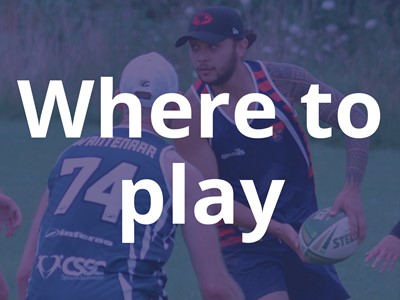Sign-up to receive all the latest news from England Touch
Physio Corner - Stretching
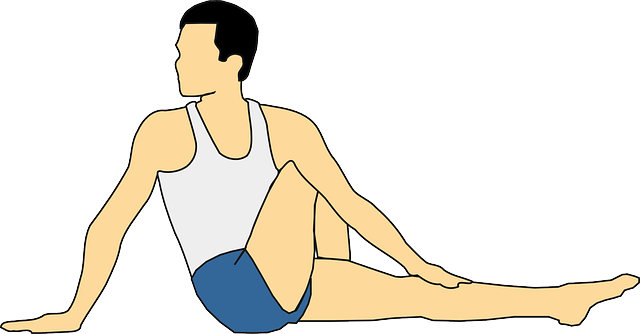
Stretching
Are we achieving what we think we are when we stretch?
The concept that stretching is non-beneficial or in some cases detrimental is, I suspect, alien to most. Culturally the majority of us are schooled on stretching throughout our education, we are told as children to stretch by our teachers and it usually follows us through to our participation in sporting activities, with good willed and keen coaches who genuinely want to improve us as well as look after us.
Personally stretching as a philosophy has followed me through my life, as a child at school, as a keen sportsman and as a healthcare practitioner and scientist. Recently I was asked to speak at an international conference on sports injuries and the organiser asked me to tackle the subject of stretching, incidentally the conference was entitled ˜Changing Perspectives™. The audience consisted of sports professionals, coaches, physiotherapists, medics etc. I started the presentation by asking the audience how many of them stretched before, during or after sport; additionally I asked them to keep their hands up if they gave this advice to their players and patients etc. Not surprisingly everyone in the room had their hands held up high for both.
As a physiotherapist I am able to ask a clinical question but it™s my training as a scientist which puts me in a position of being able to challenge the norm, to remain objective and to thin slice the varying conflicting views.
When you question people about stretching or examine the evidence you will find two 2 main rationales:
1 - Stretching with the intention of warming up
2 - Stretching as an adjunct to preventing injury
Other rationales given include:
3 - Stretching as a treatment for delayed onset muscle soreness (DOMS)
4 - Stretching to improve flexibility
5 - The feel good factor often associated with the process of stretching.
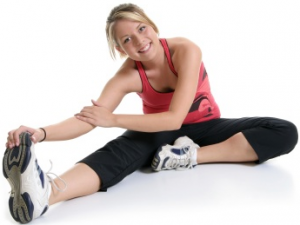
Unfortunately if we examine each one of these rationales scientifically (apart from stretching and flexibility) they don™t stand up to scrutiny.
There are many reasons but essentially the strength of opinion within the academic literature does not support stretching in any way with the only exception being to improve flexibility. Seldom in my scientific career have I come across a subject area that is so weighted in its condemnation.
For example if I posed this question?
œDoes stretching warm you up?

Think about it, maybe not I am hoping you are starting to think. The problem with this hypothesis is you cannot actually get the metabolic changes needed to increase changes in muscular tissue by stretching alone. Ok I accept that not all forms of active or more physically demanding stretches have been examined under scientific scrutiny but what we do know so far is at best stretching to warm up is time consuming and at worst it may even precipitate an injury.
My advice is to think about your sport and break it down. In your case, ˜Touch™, rather than following a mantra of œSimon Says in the changing room with one of you leading the stretch regime, get out on the pitch and break down what the individual components of your game are. For example, you all need to sprint, start by brisk walking with arm swings, building up to a jog, intermittent sprints, then lastly add in difficulty in the form of twisting turning, picking up a ball etc.
If you still need convincing let me explain to you what we do know about stretching. When you stretch you engender an analgesic response which is mediated by your brain, you also reduce the muscles ability to react and change quickly, so naturally I would have to ask in a game as fast flowing as ˜Touch™ why would you want to put a muscle or muscle group at risk by making it less able to react and as a consequence of the analgesic effect you have created, less easy for you to detect?
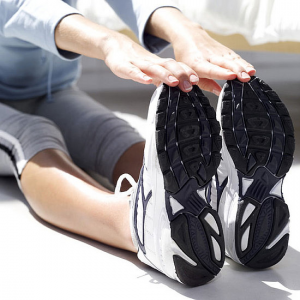
The age-old question of, œDoes stretching prevent injury? is even more weighted toward the opinion of no.
Without boring you with the science of methodological design it™s impossible to do, Stephen Hawkings could not unpick this one. However, in brief, where it has been tested the overall scientific opinion is it makes no difference. With regard to performance enhancement it actually slows you down, so in essence, if you stretch you won™t be able to run as fast compared to not stretching! Does it help muscle soreness or delayed onset muscle soreness? Categorically the experimental evidence says no, but for those of you with a scientific background we could have probably answered this one without the need of fancy experiments, after all how would stretching change micro tearing?
Apart from flexibility changes (which you would want to induce in a player well in advance of a game or training session, remember the reasons I mentioned earlier!) or if you™re coming back from an injury where a haemotoma or such had reduced your normal range of movement in a muscle or joint, is stretching indicated. This should of course be done under supervision of your coach or physiotherapist.
The only other thing I would say about stretching is this: Stretching does make you feel good. It creates, through its analgesic effect and its in-printing effect on your brain, a feeling of well being; we like it, culturally we have always done it so it cannot be bad, can it?
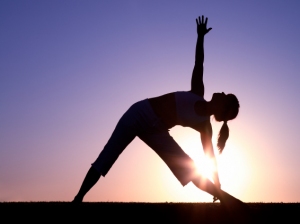
Even if you™re the most resistant type of personality, have a week when you don™t stretch but instead progressively load your body with relevant sports specific movements and see what you think!
Jonathan Flynn MSc MCSP
Contact details: j.m.flynn@hud.ac.ukReferences:
¢Anderson, JC. (2005) ˜Stretching before & after exercise: effects on muscle soreness & injury risk™, J. Athl Train. 40 (3): pp 218-220.
¢Blair, SN. Kohl, III HW. & Goodyear, NN. (1987) ˜ Relative risks for running & exercise injuries: studies in three populations™, Res Q. 58: pp 221-228.
¢Brunet, ME. Cook, SD. Brinker, MR. & Dickinson, JA. (1990) ˜A survey of running injuries in 1505 competitive & recreational runners™, J. Spor Med Phys Fitness. 30: pp 307-315.
¢Hart, L. (2005) ˜Effect of stretching on sport injury risk: a review™, Clin J. of Spor Med. 15 (2): p 113.
¢Hart, LE. (2003) ˜Effects of stretching on muscle soreness & risk of injury: a meta anaylsis™, Clin J. of Spor Med. 13 (5) pp 321-322.
¢Herbert, RD. & Gabriel, M. (2002) ˜Review: Stretching before or after exercise does not prevent muscle soreness or reduce the risk of injury™, BMJ. 325, pp 468-70.
¢Howell, DW. (1984) ˜Musculoskeletal profile & incidence of musculoskeletal injuries in lightweight women rowers™, Am J. Sort Med. 12: pp 278-282.
¢Jacobs, SJ. & Berson, BL. (1986) ˜Injuries in runners: a study of entrants to a 10,000 meter race™, Am J. Sport Med. 14: 151-155.
¢Kerner, JA. & D™Amico, JC. (1983) ˜A statistical analysis of a group of runners™, J. Am Pod Assoc. 73: pp 160-164.
